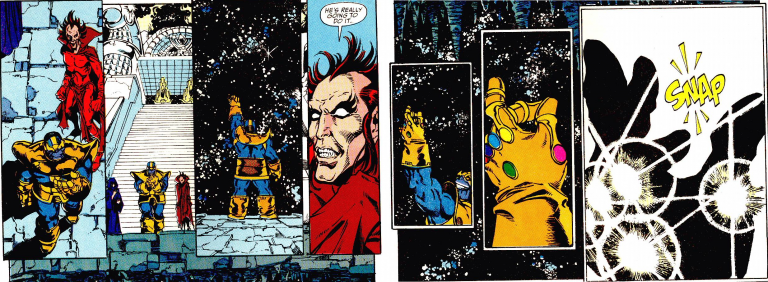This article serves as a companion piece to Episode 5 of the Pop Culture Coram Deo Podcast. Subscribe for more engagement of pop culture in light of God’s glory (iTunes, Google Play, Stitcher, Tune In, acast, Player.FM). You can watch The Thing on Amazon.
What do you get when you stick a bunch of men in a remote antarctic compound alone with a consuming-replicating alien? The answer, selfishness, or nothingness, or so John Carpenter in The Thing wants you to think.
The story starts with a bunch of research scientists and workers stationed in Antarctica. It’s a lonely, desolate place. And all these men have are each other. Then a dog comes running into their compound, followed by a mad gunman who will stop at nothing to kill it. The scientists kill the man and put the dog in the pen with their other dogs. Not long after, the dog reveals itself to be an alien creature after it attacks the other dogs with its “tentacles.” The men burn the alien, but not before it transforms other men in the compound. Thus, the men cannot tell who is human and who is alien. As a result, these friends begin to turn on one-another.
Kurt Russell plays the main character, MacReady, and he is no Christ-like figure. Once the thing starts attacking, paranoia causes he and the other men to have a me-first mentality. Macready even kills an innocent man without apology or remorse. Carpenter seems to be saying, “Evil always wins, whether it’s an evil alien or evil men.” And what is the antidote for survival? Paranoia, or assuming the worst of others.
The question is if these men will become aliens themselves in the name of killing the alien? The goal of the alien is survival at all costs. Carpenter is saying that mankind, when put in certain circumstances, only cares about himself. The telos, the goal, in The Thing is personal survival, not the survival of the group. What a bleak nihilistic picture; all is nothingness; all is selfishness; evil wins.
But the Scriptures and recent Church History offer other stories, stories of selflessness, stories where good wins not evil.
First, consider Christ. The ultimate example of selflessness we have is Jesus Christ, God the Son Incarnate. Jesus Christ gave His life for the world and especially for His people. When man could not save himself, God became man to save us. Jesus lived the life God required His people to live, and then He died the death we deserve, for His Father’s glory and for our good. But He didn’t stay dead; three days later Jesus Christ rose from the dead. Today, He sits at the right hand of His Father until His enemies are made His footstool.
Second, consider the five evangelical missionaries murdered in 1956. These five men sought to take the gospel to an unreached head-hunting tribe of cannibals in Ecuador. When the tribe attacked the men with spears, one of the missionaries had a gun and fired it into the air instead of shooting the headhunters. These missionaries gave their lives seeking to share the life-saving gospel of Christ; survival was not their ultimate goal; God’s glory was. Two of the missionaries’ widows returned to share the gospel with the tribe later. The head-hunting tribe was converted to Christianity as a result. What Satan meant for evil, God meant for good.
There are many other examples that could be mentioned. The point is that human history proves Carpenter wrong. Although many men have shown themselves selfish, Jesus Christ was not selfish. And, due to Christ working in his church, there are Christians who have sacrificed their own lives for their enemies as well. All is not nothingness; all is not selfishness; evil doesn’t always win in this life.
Finally, in the end, evil never wins. One day, God will balance the books; He will bring justice to the world, a perfect justice where the wicked are punished and the righteous are rewarded. Christ will rule and reign in a sinless New Heaven and New Earth, a place full of love and absent of evil.
In other words, it is love, not paranoia that ensures the eternal survival of the human race. And, it is not self-love that ultimately will save us. It is self-less love, a love that puts others above ourselves. The glorious news of the gospel is that Jesus Christ put His Father’s glory and His people above His own well-being. And because Christ has done this perfectly for us, as we trust in Him alone to save us, we too can put others above ourselves.
The gospel frees us Christians to worry about the survival of others first, and ourselves second, precisely because Christ has ensured our eternal survival through His life, death, burial, resurrection, ascension, and future reign!













